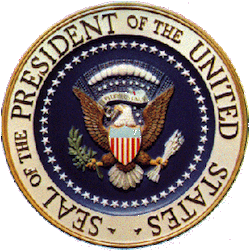
 24/7 Media, Adtegrity, AOL, Condé Nast, Google, Microsoft, SpotXchange, and Yahoo!, with the support of the Interactive Advertising Bureau, have committed to a set of best practices to address online infringement by reducing the flow of ad revenue to operators of sites engaged in significant piracy and counterfeiting, according to a statement from the White House.
24/7 Media, Adtegrity, AOL, Condé Nast, Google, Microsoft, SpotXchange, and Yahoo!, with the support of the Interactive Advertising Bureau, have committed to a set of best practices to address online infringement by reducing the flow of ad revenue to operators of sites engaged in significant piracy and counterfeiting, according to a statement from the White House.
Under the guidelines, ad networks will maintain and post policies discouraging or preventing sites that sell counterfeit goods, engage in copyright piracy or otherwise violate laws. They will also accept and process notices from rights holders about sites in question, provide guidance for the content of a “proper” notice, and identify the “designated agent” to receive a notice.
“With more than 30 trillion individual pages on the web, online piracy and counterfeit remains a challenge,” said Susan Molinari, Vice President, Public Policy and Government Relations at Google. “Google takes that challenge seriously. Using cutting-edge technology like YouTube’s Content ID and innovative copyright removal tools for Web Search, we develop and deploy antipiracy solutions with the support of hundreds of Google employees. In addition to developing legitimate, innovative, and convenient content offerings (such as Google Play and YouTube, through which our partners together generate hundreds of millions of dollars), we continue to develop solutions to help fight piracy and counterfeit online.”
“It is critical that such efforts be undertaken in a manner that is consistent with all applicable laws and with the Administration’s broader Internet policy principles emphasizing privacy, free speech, fair process, and competition,” it was said in a statement from the White House. “We encourage the companies participating to continue to work with all interested stakeholders, including creators, rightholders, and public interest groups, to ensure that their practices are transparent and fully consistent with the democratic values that have helped the Internet to flourish. We also encourage other participants in the online advertising space to consider adopting voluntary initiatives that protect ad networks, publishers, advertisers, creators, rightholders, and above all, consumers.”
“These best practices are another step in our ongoing collaborative efforts to serve consumers and prevent illegal activity,” says RIAA Chairman and CEO Cary Sherman. “They show a growing recognition that all intermediaries – from advertisers and payment processors to ISPs, search engines, mobile ad networks, registrars and others – have a meaningful role to play in building a better ecosystem for legitimate digital commerce. The real test will come as these practices are implemented, and whether they have a demonstrable impact. We will be monitoring closely. The good news is that today there are independent businesses – such as WhiteBullet and Veri-Site – that provide intellectual property risk assessments of websites, and can help responsible companies independently assess whether they want to do business with rogue sites. We are committed to working with the ad networks to achieve effective results.”

Category: Featured
About the Author
Jessica Nicholson serves as the Managing Editor for MusicRow magazine. Her previous music journalism experience includes work with Country Weekly magazine and Contemporary Christian Music (CCM) magazine. She holds a BBA degree in Music Business and Marketing from Belmont University. She welcomes your feedback at jnicholson@musicrow.com.View Author Profile


